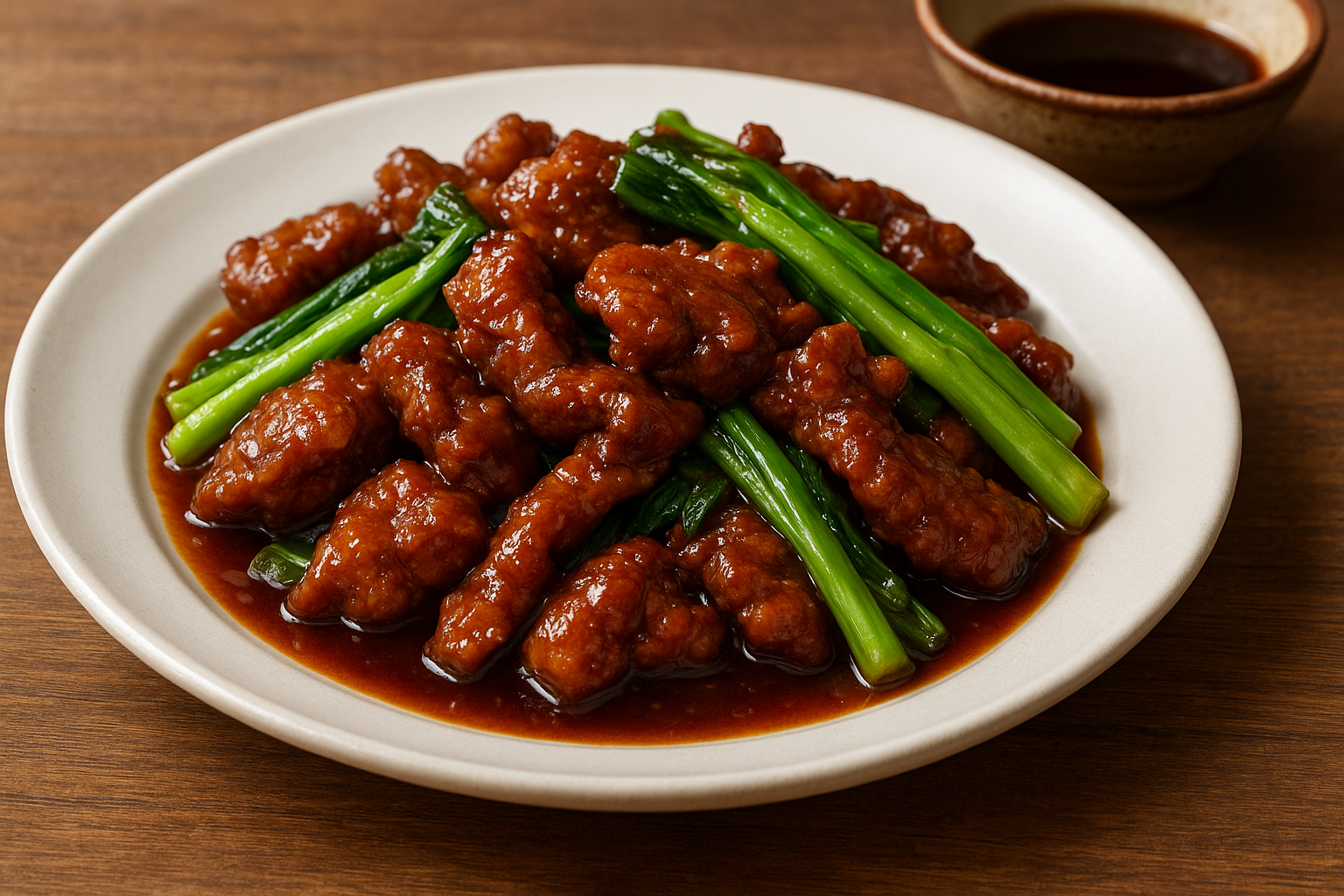Language has a unique way of capturing emotions, traditions, and experiences in just a few words. In Chinese, one such expression is mei wei (美味). At first glance, it translates simply as “delicious” or “tasty,” but its depth goes far beyond a casual compliment for food. The phrase is deeply rooted in culture, carrying associations with aesthetics, balance, and appreciation for life’s sensory pleasures.
Understanding mei wei opens a small window into Chinese traditions and values. It is more than a term for flavor—it reflects how people connect with food, family, and culture. By exploring this expression, readers can gain insight not only into the Chinese language but also into the philosophy of taste and enjoyment that influences everyday life.
In this article, we will take a closer look at the true meaning of mei wei, how it is used in daily life, its cultural significance, and why it carries a richness that simple English translations cannot fully capture. From dining tables to poetry and even modern branding, mei wei continues to play an important role in shaping how taste and pleasure are described in Chinese culture.
The True Meaning of Mei Wei
The beauty of Chinese expressions often lies in their characters, and mei wei is no exception. The phrase is made up of two characters: 美 (měi) and 味 (wèi).
- 美 (měi) means “beautiful,” “fine,” or “good.” It conveys an idea of elegance and positivity that extends beyond visual beauty. In cultural use, it often represents something pleasing or harmonious.
- 味 (wèi) means “taste” or “flavor.” While it can refer directly to the physical sensation of flavor on the tongue, it is also connected to the broader idea of experience and subtle feeling.
When combined, 美味 (mei wei) does not just mean “good taste.” It becomes a richer concept: a beautiful flavor, something that pleases the senses and elevates the act of eating.
In modern Chinese, mei wei is commonly understood as “delicious” or “tasty,” but with a slightly more refined tone. It is often used in writing, media, and more formal situations. While it can certainly be said at the dinner table, it is less casual than simply saying hao chi (好吃), which also means “good to eat.”
This small difference in tone shows the cultural depth of mei wei. It is a word that not only describes food but also elevates it, linking taste to beauty and appreciation.
Mei Wei in Everyday Language
Language is alive because it is spoken, and mei wei is often heard in daily life. People use it to describe meals that are particularly satisfying or dishes that stand out for their quality. A person might say a home-cooked soup was mei wei, or praise a banquet dish as being truly mei wei.
What makes this phrase interesting is the distinction between mei wei and hao chi. Both can mean “delicious,” but they are used in different contexts. Hao chi is simple, direct, and widely used in casual conversation. A child might say hao chi when enjoying candy, or a friend might use it when trying street food.
Mei wei, on the other hand, carries a touch of refinement. It is often used in writing, advertisements, or formal praise of a dish. When a chef presents a carefully crafted meal, calling it mei wei feels more fitting than hao chi. The choice of words reflects not just the taste of the food but the atmosphere and appreciation behind it.
In everyday conversation, people might also combine mei wei with other expressions to make the praise stronger, such as mei wei ke kou (美味可口), which means “tasty and appetizing.” These variations enrich the language and show the flexibility of the phrase.
Cultural Significance of Mei Wei
Food is central to Chinese culture, and expressions like mei wei reflect how deeply meals are tied to tradition and identity. Eating is not only about satisfying hunger but also about sharing experiences, maintaining harmony, and honoring balance.
The idea of mei wei fits naturally into this cultural view. A meal is mei wei not only because it tastes good but because it embodies balance—flavors that complement each other, textures that create harmony, and presentation that pleases the eyes. The beauty of taste is linked to the beauty of life itself.
In family settings, meals are moments of connection. A dish described as mei wei is not just delicious; it is an expression of care from the person who prepared it. In festive traditions, food described as mei wei carries even more meaning, symbolizing joy, prosperity, and togetherness.
This cultural perspective shows that mei wei is not a casual word. It reflects values of respect, appreciation, and the belief that food is a shared human experience that goes beyond flavor.
Mei Wei in Chinese Cuisine
China’s vast culinary landscape offers endless examples of dishes that could be described as mei wei. From the delicate flavors of Cantonese dim sum to the bold spices of Sichuan hotpot, every region has specialties that embody the concept.
Chefs often use mei wei when presenting their creations, highlighting the effort and artistry behind the food. A well-prepared dish is not just edible—it is beautiful in flavor, carefully balanced, and worthy of admiration.
Food lovers and critics may also use mei wei to describe unforgettable dining experiences. For instance, a perfectly roasted Peking duck, with its crispy skin and tender meat, is often praised as a mei wei dish. Similarly, dumplings prepared during Lunar New Year celebrations might be called mei wei, not only for their flavor but for their symbolic meaning of family unity and good fortune.
In this way, mei wei becomes a bridge between language and cuisine. It communicates the idea that food is more than nutrition—it is an art form, a memory, and an experience to be cherished.
Mei Wei in Literature and Expression
The phrase mei wei also finds a place in Chinese literature and traditional expressions. Writers have long used it to describe not only food but experiences that feel rich, elegant, and satisfying.
For example, idioms such as mei wei ke kou (美味可口) or mei wei jia yao (美味佳肴) are often found in poems, stories, and essays. These phrases elevate food into a symbol of pleasure and refinement. In classical writing, describing a dish as mei wei is not only about taste but about the cultural values it represents—care, harmony, and artistry.
What makes mei wei stand out is its depth. While the English word “delicious” is straightforward, mei wei carries cultural layers. It reflects beauty, respect, and emotional connection. That is why it continues to appear in modern media, literature, and even personal expressions of gratitude after a meal.
Mei Wei Beyond Language
The influence of mei wei extends beyond spoken and written words. It is commonly seen in restaurant names, food packaging, and branding, not only in China but in many parts of the world.
Using mei wei in branding instantly connects a product or restaurant with ideas of authenticity and quality. For Chinese audiences, it carries cultural familiarity. For international audiences, it adds an element of curiosity and cultural flavor, making the brand stand out.
Beyond commercial use, mei wei has become a global cultural bridge. As Chinese cuisine spreads internationally, the term appears in menus, food festivals, and culinary media, reminding people of the cultural richness behind the taste.
This demonstrates that mei wei is not just a phrase locked in tradition. It continues to evolve, carrying its meaning across borders and making the appreciation of taste a shared global experience.
Conclusion
The phrase mei wei is simple, yet it carries layers of meaning that reflect both language and culture. At its core, it means “delicious,” but its true essence is far deeper. Rooted in the characters 美 (beautiful) and 味 (taste), it represents the idea of food as a source of beauty, harmony, and shared joy.
In everyday life, mei wei describes meals that touch the heart, whether through flavor, balance, or the love behind the cooking. In Chinese cuisine, it highlights artistry and tradition. In literature and expression, it reflects refinement and cultural depth. Beyond language, it continues to influence branding and global culinary culture.
Ultimately, mei wei shows that food is more than sustenance—it is a universal experience that brings people together. Whether spoken at a family table, written in a poem, or displayed on a restaurant sign, mei wei remains a timeless reminder that the beauty of flavor connects us all.
My name is Mustafa, and I have been blogging for over 5 years. I am passionate about sharing complete, accurate, and helpful information with my readers. Along with managing content on The Matcha Read, I also contribute blog posts to premium websites. My goal is to provide valuable insights in a clear and easy-to-understand way, so every reader walks away with useful knowledge.










